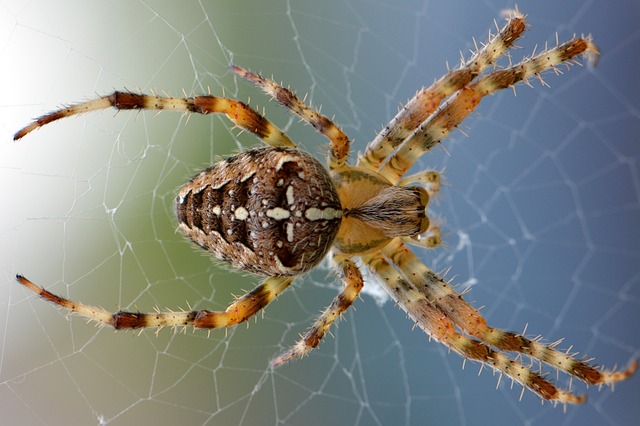Lower parasitism and predation in urban habitats may contribute to the invasion success of brown widow spiders. Dr. Monica Mowery and colleagues at Ben-Gurion University of the Negev compared egg sac parasitism in the urban invasive brown widow spider, Latrodectus geometricus, to the desert white widow spider, L. pallidus. Denser white widow sites were more heavily parasitized, while extremely dense brown widow populations had very low rates of parasitism. In a transplant experiment, they found no parasitism of either species in the urban habitat, and lower predation of white widow spider egg sacs in the urban habitat, which indicates that an urban habitat protects the invasive spiders from predators and parasites.
“Our results suggest that habitat plays a key role in changing interactions with predators and parasites, and in particular that urban species may benefit from a lower abundance of predators in their habitat,” explains Dr. Mowery, a postdoctoral fellow at Ben-Gurion University of the Negev.
Will you offer us a hand? Every gift, regardless of size, fuels our future.
Your critical contribution enables us to maintain our independence from shareholders or wealthy owners, allowing us to keep up reporting without bias. It means we can continue to make Jewish Business News available to everyone.
You can support us for as little as $1 via PayPal at office@jewishbusinessnews.com.
Thank you.
The study was published recently in the journal Oecologia.
The brown widow spider, Latrodectus geometricus, is an urban invasive species found in warm climates worldwide. To investigate variation in host and parasitoid density, the authors measured spider density and parasitism rates across the Negev over the course of a year. The authors found that brown widows thrive at extremely high densities, as close as 10 cm from one web to the next, yet they had very low rates of parasitism by a common natural enemy, a parasitoid wasp that attacks spider egg sacs. In contrast, white widow spiders living at high density in the Negev Desert were heavily parasitized.
To test the effects of habitat experimentally, the authors transplanted spider webs with egg sacs of both species between urban and natural desert habitats. In addition to higher egg sac parasitism in natural sites, they found more predation of white widow spider egg sacs in the desert habitat, likely by birds, spiders, or ants. No egg sacs of the invasive brown widow were preyed upon in the field transplant experiment, which suggests that the invasive species may not be recognized as prey by local predators.
Colonizing an urban, fragmented habitat provides benefits to invasive species, and may allow them to persist in new environments with a lower risk of mortality from predators.




